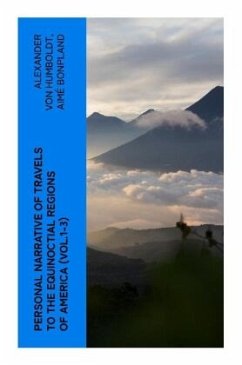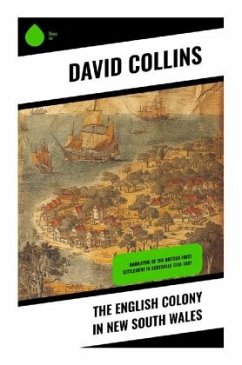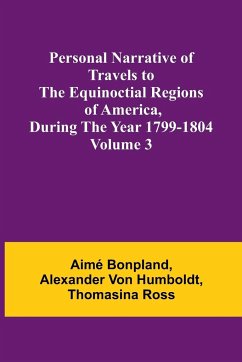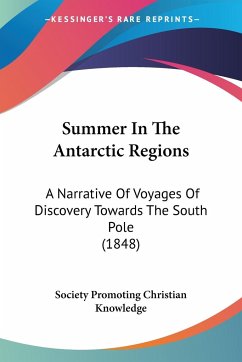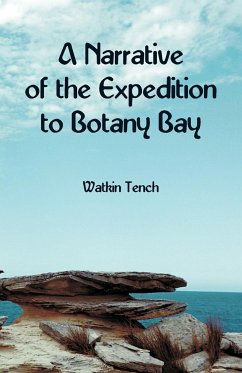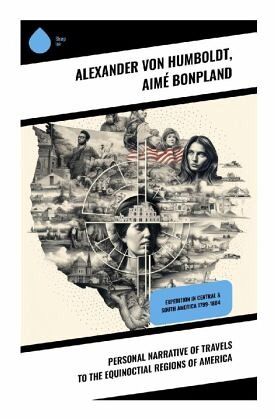
Personal Narrative of Travels to the Equinoctial Regions of America
Expedition in Central & South America 1799-1804
Übersetzung: Bonpland, Aimé
Versandkostenfrei!
Versandfertig in 6-10 Tagen
34,30 €
inkl. MwSt.

PAYBACK Punkte
0 °P sammeln!
Alexander von Humboldt and Aimé Bonpland's 'Personal Narrative of Travels to the Equinoctial Regions of America' presents a compelling anthology that transcends mere travelogue to become a pivotal piece of Enlightenment literature. Covering a vast geographical and thematic range, the collection encapsulates the burgeoning curiosity towards the natural world and human cultures during the early 19th century. Through diverse literary styles, including descriptive passages, scientific observations, and philosophical musings, the works together paint a rich tapestry of the Latin American landscape...
Alexander von Humboldt and Aimé Bonpland's 'Personal Narrative of Travels to the Equinoctial Regions of America' presents a compelling anthology that transcends mere travelogue to become a pivotal piece of Enlightenment literature. Covering a vast geographical and thematic range, the collection encapsulates the burgeoning curiosity towards the natural world and human cultures during the early 19th century. Through diverse literary styles, including descriptive passages, scientific observations, and philosophical musings, the works together paint a rich tapestry of the Latin American landscape. Readers will find standout observations on the intricate biodiversity of the region, the complexities of its indigenous cultures, and the revolutionary thoughts inspired by the authors' journey through ecosystems yet untouched by modernity. Humboldt and Bonpland bring a unique confluence of expertise and perspective that marks this collection. As Enlightenment thinkers and pioneering scientists, their contributions stem from a deep immersion in naturalist and humanist traditions. This anthology aligns with the spirit of scientific inquiry and romanticism that defined the era, enriching contemporary understandings of geography and ecology. Together, the voices of Humboldt and Bonpland interweave a narrative that challenges and advances the reader's conception of the natural world and humanity's place within it. For scholars and enthusiasts of natural sciences and history alike, this collection offers a powerful convergence of insights and discoveries. The anthology is not only a portal to the rich ecosystems of 19th-century America but also an invitation to participate in the broader dialogue about humanity's interplay with the natural environment. Its educational value and breadth of perspectives offer a compelling exploration of how diverse experiences and observations converge to enrich our understanding of both the past and its influence on current environmental thought.



